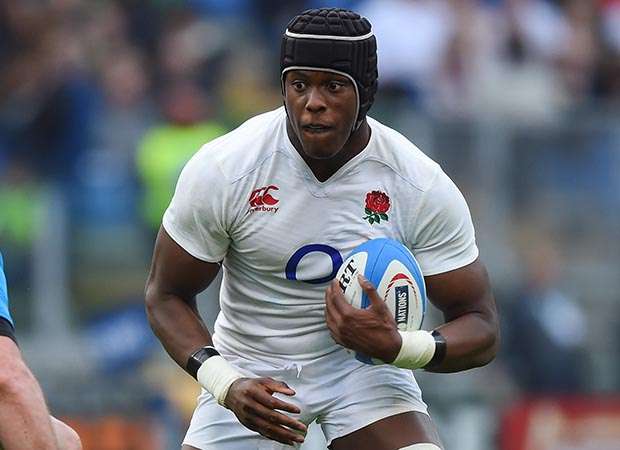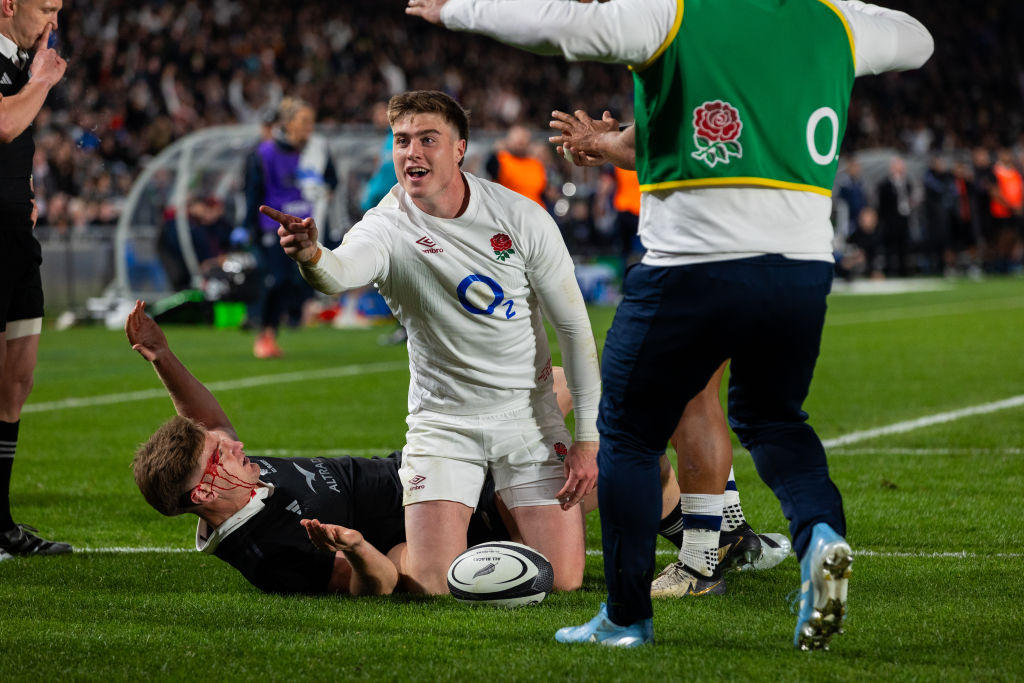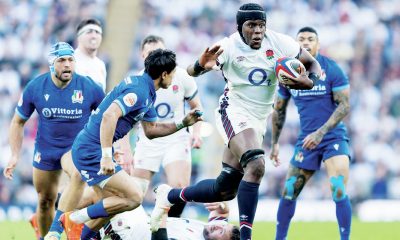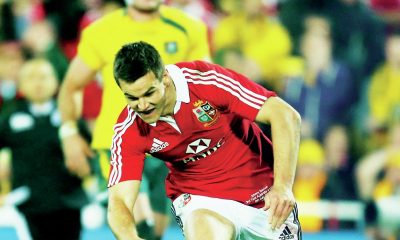
 If Joe Schmidt is under pressure in Ireland, that’s pretty unjust. It would be based only on the World Cup, and the first two games of the Six Nations – a draw with Wales, and a one point away loss to France. For me, Schmidt’s coaching record with Ireland of two Six Nations Championships out of two speaks for itself.
If Joe Schmidt is under pressure in Ireland, that’s pretty unjust. It would be based only on the World Cup, and the first two games of the Six Nations – a draw with Wales, and a one point away loss to France. For me, Schmidt’s coaching record with Ireland of two Six Nations Championships out of two speaks for itself.
His critics should remember that no-one can win the World Cup until 2019, so the Northern Hemisphere nations should wipe the slate clean and recognise that while the aim is to strive to win every game it is also time to rebuild.
Whether pressure is building on Schmidt before Ireland’s trip to Twickenham on Saturday or not , it won’t be any greater than what he puts on himself.
I’m fascinated by him as a coach, and by his template for Ireland. It’s like working out a puzzle, and I liken it to a book of NFL plays.
Schmidt has designed a game aimed at plays which gain yardage, territory and touchdowns which is incredibly well-structured, with a high level of detail.
Some players like that, and others don’t. We are not all built the same way, and have different aptitudes – and the same applies in rugby teams. It can be very simple, such as a seven man line-out with each player having his role, but even then in the heat of the match they can be forgotten.
However, for two seasons Schmidt’s way has worked incredibly successfully for the Irish. It’s been a very difficult code for the other teams to crack, and when those NFL plays are done well they result in touchdowns, or pressure positions that yield penalties.
One of the reasons why Ireland have tended to score more through penalties than tries is that playbook rugby is the subject of equally detailed analysis, which means that ‘plays’ can be blocked.
Defences chasing back can block legally, people can be taken out in line-outs undetected, and players held-in at rucks and mauls, as well as held down after the tackle.
The danger with the playbook style comes when opponents do not buy the smoke-and-mirrors stuff and the attacking team have to find another way. Sometimes they have a tendency to overcomplicate because of the detail they are used to, and appear to have lost the ability to attack space off quick ball, which is often all that is required to make the most of a chance.
When I played we also had training ground strike moves, but these days some teams find it difficult to switch from one style to another. That’s the case with Ireland, who have not made the move from attacking off set-piece and phase play to a heads-up approach looking at space and what’s on.
Ireland have not been helped this season by injuries. It’s hard when teams lose their best players, especially those without a huge amount of reserve strength. However, if the four provincial sides in Ireland sign foreign players it means the national coach has fewer Irish options.
Even so, the Irish had enough opportunities to win against France. They were dominant for a significant part of the game, but could not finish what they created because of a rash of unforced and forced errors.
The Irish attack has spluttered recently, and it coughs-up possession more easily than it did. They need to re-boot, using eyes and mouths to communicate. My thinking is that if you can coach an NFL-style playbook you can also coach a looser strategy which exploits space just as effectively.
Most teams rely on momentum for freedom and flow, however if it is continually interrupted by errors, or players in the wrong place at the wrong time, it can be frustrating for orchestrators like Johnny Sexton.
The Irish fly-half holds high standards for himself, and others, and Sexton at his best is world-class. But, if you are not reaching those standards yourself then it’s frustrating, even though you have played reasonably well.
Ireland are not that different to last season, but other teams are wise to their playbook, and they are a tad off in their execution of those plays.
They are also missing the tank-like carrying of Sean O’Brien and the workrate of Peter O’Mahony in the back-row, and their replacements do not offer like-for-like.
Ireland also traditionally go bad when their scrum goes bad. However, their scrum has been okay, as has their lineout at 85 per cent, so they will have few doubts about their set-piece against an England pack which hasn’t been all bells and whistles.
On top of that, this Ireland side know how to win. They have delivered two Championships, and they will not be intimidated by meeting an England side on a two-win high.
Ireland are an intense team, as they showed in the first-halves against Wales and France, and if they can continue in that vein they will believe tries will come.
If not, they have the best defensive stats in the Six Nations alongside Wales, and Sexton is a high-class kicker who will nail them from everywhere.
Remember too, that England have had some down-times during this Championship. They could have lost that game against Scotland because they had a 30 minute slump where a more clinical side would have put them away.
The Irish have been written off for this trip to Twickenham, but they will be coming to show why they are champs despite having a couple of bad days at the office.
It will be hammer and tongs, and Ireland will try and do the same kick-and chase they did in Dublin last year. If they do, Anthony Watson and Jack Nowell will need to be better equipped to deal with it.
The test for England is to play the heads-up rugby they did with the Nowell try against Scotland, and the Ford and Farrell tries in Rome.
If anything, they have to play quick ball with greater intensity, but they need to do it for longer. If they are 30 per cent fitter then they should be able to do it!
England could be slicker in attack and if they worried less about shape when running quick ball they could go well.
However, they will also want to nullify Ireland’s good starts and shake them up early. To do that they could start Maro Itoje in the back-row to match Ireland’s energy, because he looks as if he can go for 100 minutes not just 80, and maybe also Jack Clifford.
England will believe they can win, and despite Schmidt’s presence in the Irish corner I would back them to do so.


British and Irish Lions
From Leicester reject to a British and Irish Lion: Tommy Freeman’s stellar rise
Latest News
Steve Diamond: Franchise league a good idea

International Rugby
Touring Japan with Wales is my goal says Dan Edwards
























You must be logged in to post a comment Login